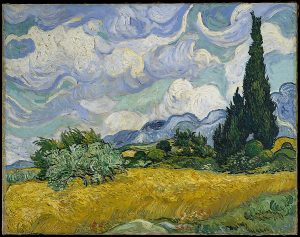What is a Copyright?

In the U.S, Artists have the exclusive right to their artwork. This right is very valuable, if registered properly.
Generally, copyrights protect original works of art such as books, music, plays, pictures, movies, architecture and certain other works. Copyrights provide protection whether the work is published or unpublished and, unlike a patent, gives the artist positive rights, the right to work with the intellectual innovation.
What is a Copyright depends on the type of work and how it is created. Copyrights typically protect creative works which have been incorporated into a tangible item, like a book, music, painting, movies. Copyrights do not extend to functional ideas, rather they protect the tangible products created by those artists. Additionally, copyrights only extends to the original works of authorship embodied in the tangible items.
U.S. Copyright Law defines what is a copyright. The law says that an artist has copyrights the moment they create something. As a result the artist has an exclusive right to reproduce the authored work, prepare alternative embodiment’s of the work (derivative works), distribute copies and for some categories of art, publicly perform and publicly display the work. These rights are very valuable because they allow the copyright owner to not only use the work but also prevent others from using the work.
Term of Copyright Protection
For works created after 1978, these rights last for the life of the artist plus seventy (70) years. For a business or for unpublished works, the duration is ninety-five (95) years from publication or 120 years from creation, which ever is shorter.
In some cases, an infringer may ask what is a copyright. Under the Copyright laws, it is illegal for anyone to violate any of the copyright owners rights (infringement). More information about Copyright infringement and Copyright Litigation is located here.
Potential Defenses and Exemptions from Copyright Liability.
One common exemption is the doctrine of “fair use” which permits infringement of another’s work in some special circumstances. In other instances, the Copyright laws allow another to use a copyrighted work with the use of a “compulsory license” under which certain uses are permitted after payment of specified royalties and compliance with other requirements.
You can read more about copyrights on our website. If you believe someone has violated your rights or if someone has challenged your copyrights, you should contact one of our litigation attorneys at your earliest convenience.
